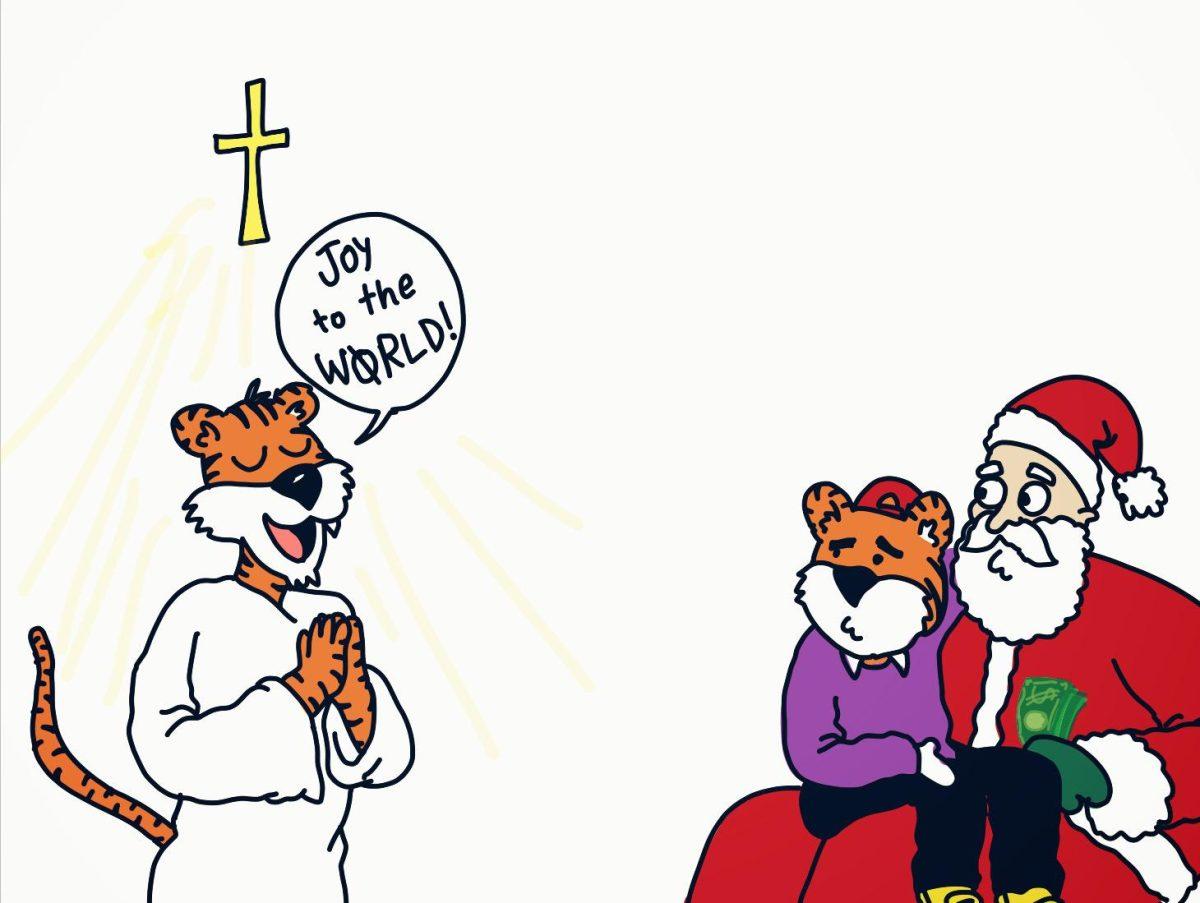Growing up, I always sensed a fundamental tension between the different elements of the holiday season. My family would go to church, give each other gifts and listen to songs about Santa Claus — all in the name of Christmas.
I was confused about how all these seemingly unrelated things could be united under a single concept — especially one that claimed to be explicitly religious. After all, what do reindeer, elves and multicolored tree lights have to do with the birth of Jesus?
For many, this admittedly strange — almost paradoxical — relationship between the sacred and secular presents a serious dilemma around the holidays.
For instance, think of a movement like “Keep Christ in Christmas,” which aims to reassert the prominence of religious themes into the mainstream holiday outfit. The catchphrase, which can be found plastered across any number of billboards or bumper stickers during the month of December, seems to imply that non-religious manifestations of the holidays are fundamentally at odds with the season’s sacred significance.
Obviously, there is something to said for making sure believers don’t slip into an almost idolatrous relationship with the holiday, directing one’s attention away from the spiritual.
However, I propose that the Christmas season’s secular extravagance does not necessarily corrupt or contradict its religious roots. In fact, the holiday’s secular and religious elements can be thought of as completely separate, almost unrelated celebrations.
The first: a traditional, solemn religious holiday that takes place behind the closed doors of churches and Christian homes. Here, the focus is on celebrating one of the most fundamental threads of Christian belief and all its cosmic implications.
The second: a fun, yet superficial, winter feast of sorts, can be thought of in terms of holidays like Thanksgiving or the fourth of July. It is essentially a nationwide party with a remote historical memory that vaguely justifies or explains its existence.
These two strains of holiday celebrations obviously have a common cultural root, so how might they have become so distinguished from each other?
According to my (very casual) sociological observations, as much of American religious practice has withered and waned over the years, the once-sacred core of Christmas has almost entirely been extracted from the public sphere — all that seems to remain is a sugary consumerist shell with its bright lights and excessive shopping.
Even certain Christmas traditions that have religious origins, like Saint Nicholas himself, have been so aggressively removed from their original context that the average American would most likely not see them as having any spiritual significance whatsoever.
By no means am I trying to say the religious expressions of the holiday are somehow no longer relevant. However, America seems to have discarded its sense of cultural Christian philosophy. With Christmas celebration so deeply ingrained in the national psyche, the holiday simply adapted to this spiritual shift, splintering like an iceberg and floating off into two very different directions.
To be clear, just because these two modes of celebration can be considered autonomous from each other does not mean they should be thought of as equally significant.
In the eyes of a practicing Christian, it goes without saying that the holiday season’s secular pleasantries are utterly dwarfed when commemorated alongside what is believed to be the literal incarnation of God on Earth. Even the non-Christian can recognize that, without the holiday’s religious underpinnings, Christmas is little more than a festive remembrance of family and altruism. Even that seems a bit generous, though.
Nevertheless, I disagree with the assertion that the colorful trappings of secular Christmas are essentially corrupting or contradictory to the holiday’s religious roots. With the proper distinctions in context, the two celebrations can certainly coexist.
In fact, understanding the holiday season as consisting of two separate celebrations might even be a helpful way for people, especially Christians, to make necessary distinctions and compartmentalize their practices. It becomes increasingly difficult for Christians to lose themselves in idolatry when the religious elements of the holiday season stand untouched by secularism.
Regardless of religious belief, understanding the nature of our cultural practices is essential for carrying out their proper ends. If we fail to recognize the significance of our rituals, we risk making the culture-crushing mistake of confusing the spiritual and the secular.
Evan Leonhard is a 20 year-old English and philosophy junior from New Orleans.
Opinion: Christmas no longer just a religious holiday — and that’s OK
December 1, 2020
Christmas comic








